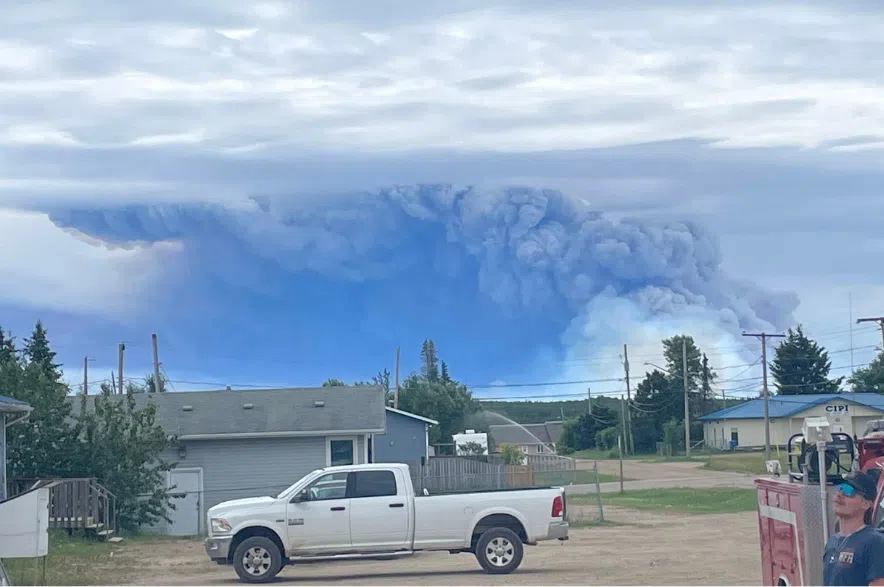Beauval mayor Rick Laliberte couldn’t be more grateful for the nearly 200 firefighters who were helping protect his community over the last number of days.
The village, located 310 kilometres northwest of Prince Albert, was left scrambling last Thursday as a fast-moving fire reached doorsteps within hours, prompting an evacuation of all but the firefighters tasked with protecting critical infrastructure.
“We thank them. They saved our community,” Laliberte said. “That fire was a direct threat to our community and the Delta sprinkler system, and the SPSA (Saskatchewan Public Safety Agency) preparedness saved my community big time.”
Read more:
- Prince Albert National Park under wildfire emergency alert
- Sask. wildfire smoke triggers air quality warning for Saskatoon
- NDP upset over Beauval wildfire miscalculation from SPSA
Laliberte said they did lose a concession stand, a garage and a couple vehicles, but all homes were spared. However, the threat of fire remains.
“Today, the winds are picking up again,” Laliberte said. “Yesterday, another big flare up showed up – that’s still the same fire and it approached the Beauval Forks.”
Laliberte suggested the fire from the Beauval Forks was about a kilometre away, but he added that’s not the only blaze they’re battling.
“Last night on the other end of the village is another ranch called the Burnoff Ranch. The fire creeped up on us from behind. We were monitoring it from the river, from the north side where the wind was blowing from, but it came from the west side,” he explained. “At midnight our Beauval fire crew and crew from Dalmeny came in and we had to douse it. We had to carry the water there in water tanks. There was no water supply.”
Time to rethink equipment and training, says mayor
“We can’t just stop at supper and take a day off,” Laliberte added. “It’s 24/7 fire watch over here right now.”
Laliberte said he wants the government to develop a plan to better equip northern communities to fight wildfires, adding that the urban fire department model doesn’t work for them.
“Because we live in the north, I think we have to change and create a hybrid fire team here. Now it’s not just structural fire, we’ve got to prepare ourselves for wildfire response, initial response and that’s going to take a bunch of equipment and bunch of training,” he explained.
“We’re going to live in the boreal forest here in Canada. We got to be prepared to fight these fires and know how to suppress them and how to manage all the other assets that are coming in to help we need to be a part of that plan,” he added. “It can’t be just an exterior plan or a military plan. We got to involve the community as well.”











